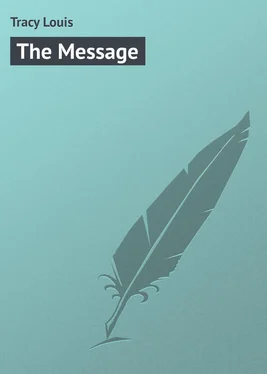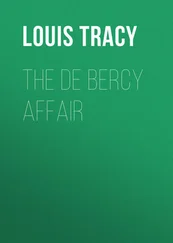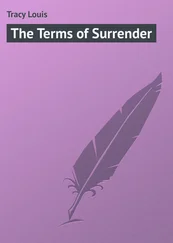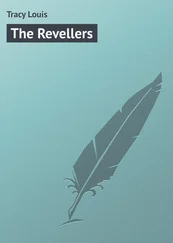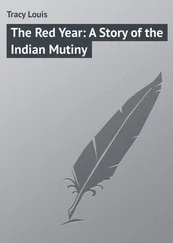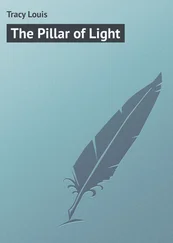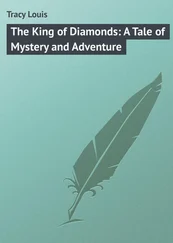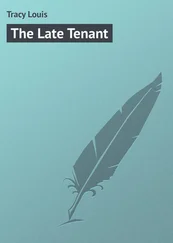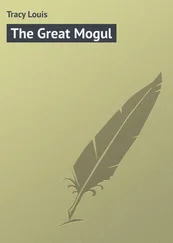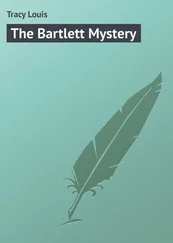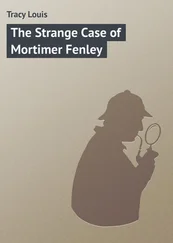Louis Tracy - The Message
Здесь есть возможность читать онлайн «Louis Tracy - The Message» — ознакомительный отрывок электронной книги совершенно бесплатно, а после прочтения отрывка купить полную версию. В некоторых случаях можно слушать аудио, скачать через торрент в формате fb2 и присутствует краткое содержание. Жанр: foreign_prose, на английском языке. Описание произведения, (предисловие) а так же отзывы посетителей доступны на портале библиотеки ЛибКат.
- Название:The Message
- Автор:
- Жанр:
- Год:неизвестен
- ISBN:нет данных
- Рейтинг книги:3 / 5. Голосов: 1
-
Избранное:Добавить в избранное
- Отзывы:
-
Ваша оценка:
- 60
- 1
- 2
- 3
- 4
- 5
The Message: краткое содержание, описание и аннотация
Предлагаем к чтению аннотацию, описание, краткое содержание или предисловие (зависит от того, что написал сам автор книги «The Message»). Если вы не нашли необходимую информацию о книге — напишите в комментариях, мы постараемся отыскать её.
The Message — читать онлайн ознакомительный отрывок
Ниже представлен текст книги, разбитый по страницам. Система сохранения места последней прочитанной страницы, позволяет с удобством читать онлайн бесплатно книгу «The Message», без необходимости каждый раз заново искать на чём Вы остановились. Поставьте закладку, и сможете в любой момент перейти на страницу, на которой закончили чтение.
Интервал:
Закладка:
Louis Tracy
The Message
CHAPTER I
DERELICTS
“It’s fine!” said Arthur Warden, lowering his binoculars so as to glut his eyes with the full spectacle. “In fact, it’s more than fine, it’s glorious!”
He spoke aloud in his enthusiasm. A stout, elderly man who stood near – a man with “retired tradesman” writ large on face and figure – believed that the tall, spare–built yachtsman was praising the weather.
“Yes, sir,” he chortled pompously, “this is a reel August day. I knew it. Fust thing this morning I tole my missus we was in for a scorcher.”
Warden gradually became aware that these ineptitudes were by way of comment. He turned and read the weather–prophet’s label at a glance. But life was too gracious at that moment, and he was far too well–disposed toward all men, that he should dream of inflicting a snub.
“That was rather clever of you,” he agreed genially. “Now, though the barometer stood high, I personally was dreading a fog three hours ago.”
The portly one gurgled.
“I’ve got a glass,” he announced. “Gev’ three pun’ ten for it, but there’s a barrowmeter in my bones that’s worth a dozen o’ them things. I’ll back rheumatiz an’ a side o’ bacon any day to beat the best glass ever invented.”
All unknowing, here was the touch of genius that makes men listen. Warden showed his interest.
“A side of bacon!” he repeated.
“Yes, sir. Nothing to ekal it. I was in the trade, so I know wot I’m talkin’ about. And, when you come to think of it, why not? Pig skin an’ salt – one of ‘em won’t have any truck wi’ damp – doesn’t want it an’ shows it – an’ t’other sucks it up like a calf drinkin’ milk. I’ve handled bacon in tons, every brand in the market, an’ you can’t smoke any of ‘em on a muggy day.”
“Does your theory account for the old–fashioned notion that pigs can see the wind?”
The stout man considered the point. It was new to him, and he was a Conservative.
“I’m better acquent wi’ bacon,” he said stubbornly.
“So I gather. I was only developing your very original idea, on the principle that
“‘You may break, you may shatter, the vase if you will,
But the scent of the roses will hang round it still.’”
The ex–bacon–factor rapped an emphatic stick on the pavement. Though he hoped some of his friends would see him hob–nobbing “with a swell,” he refused to be made game of.
“Wot ‘as scent got to do with it?” he demanded wrathfully.
“Everything. Believe me, pigs have been used as pointers. And consider the porcine love of flowers. Why, there once was a pig named Maud because it would come into the garden.”
Had Warden laughed he might have given the cue that was lacking. But his clean–cut, somewhat sallow face did not relax, and an angry man puffed away from him in a red temper.
He caught scraps of soliloquy.
“A pig named Maud!.. Did anybody ever hear the like?.. An’ becos it kem into a garden… Might just as well ‘ave called it Maria.”
Then Warden, left at peace with the world, devoted himself again to the exquisite panorama of Cowes on a sunlit Monday of the town’s great week. In front sparkled the waters of the Solent, the Bond Street of ocean highways. A breath of air from the west rippled over a strong current sweeping eastward. It merely kissed the emerald plain into tiny facets. It was so light a breeze that any ordinary sailing craft would have failed to make headway against the tide, and the gay flags and bunting of an innumerable pleasure fleet hung sleepily from their staffs and halyards. Yet it sufficed to bring a covey of white–winged yachts flying back to Cowes after rounding the East Lepe buoy. Jackyard topsails and bowsprit spinnakers preened before it. Though almost imperceptible on shore, it awoke these gorgeous butterflies of the sea into life and motion. Huge 23–meter cutters, such as White Heather II , Brynhild and Nyria , splendid cruisers like Maoona, errymaid , Shima , Creole , and Britomart , swooped grandly into the midst of the anchored craft as though bent on self–destruction. To the unskilled eye it seemed a sheer miracle that any of them should emerge from the chaos of yachts, redwings, launches, motorboats, excursion steamers, and smaller fry that beset their path. But Cowes is nothing if not nautical. Those who understood knew that bowsprits and dinghies of moored yachts would be cleared magically, and even spinnaker booms topped to avoid lesser obstruction. Those who did not understand – who heard no syllable of the full and free language that greeted an inane row–boat essaying an adventurous crossing of the course – gazed breathlessly at these wondrous argosies, and marveled at their escape from disaster. Then the white fleet swept past the mouth of the river, and vanished behind Old Castle Point on the way to far distant buoy or light–ship that marked the beginning of the homeward run. And that was all – a brief flight of fairy ships – and Cowes forthwith settled down to decorous junketing.
Away to the northwest a gathering of gray–hulled monsters had thundered a royal salute of twenty–one guns, and the smoke–cloud still lay in a blue film on the Hampshire coast. The Dreadnought was hauling at her anchors before taking a king and an emperor to witness the prowess of her gunners. The emperor’s private yacht, a half–fledged man–o’–war, was creeping in the wake of the competing yachts. Perchance her officers might see more of British gunnery practice than of the racing.
Close at hand a swarm of launches and ships’ boats buzzed round the landing slip of the Royal Yacht Club. The beautiful lawn and gardens were living parterres of color, for the Castle is a famous rendezvous of well–dressed women. Parties were assembling for luncheon either in the clubhouse or on board the palatial vessels in the roads. To the multitude, yachting at Cowes consists of the blare of a starting–gun, the brief vision of a cluster of yachts careening under an amazing press of canvas, and, for the rest, gossip, eating, bridge – with a picnic or a dance to eke out the afternoon and evening.
Arthur Warden soon turned his back on the social Paradise he was not privileged to enter. He was resigned to the fact that the breeze which sent the competitors in the various matches spinning merrily to Spithead would not move his hired cutter a yard against the tide. So, having nothing better to do, he sauntered along the promenade toward the main street. On the way he passed the one–time purveyor of bacon sitting beside a lady who by long association had grown to resemble him.
“Now I wonder if her name is Maria,” he mused.
Drifting with the holiday crowd, he bought some picture postcards, a box of cigarettes, and a basket of hothouse peaches. Being a dilettante in some respects, he admired and became the prospective owner of the fruit before he learned the price. There were four peaches in the basket, and they cost him ten shillings.
“Ah,” he said, as the shopkeeper threw the half sovereign carelessly into the till, “I see you have catered for Lucullus?”
“I don’t think so, sir,” said the greengrocer affably. “Where does he live?”
“He had villas at Tusculum and Neapolis.”
“There’s no such places in the Isle of Wight, sir.”
“Strange! Has not the game–dealer across the street supplied him with peacocks’ tongues?”
The man grinned.
“Somebody’s bin gettin’ at you, sir,” he cried.
“True, very true. Yet, according to Horace, I sup with Lucullus to–night.”
Читать дальшеИнтервал:
Закладка:
Похожие книги на «The Message»
Представляем Вашему вниманию похожие книги на «The Message» списком для выбора. Мы отобрали схожую по названию и смыслу литературу в надежде предоставить читателям больше вариантов отыскать новые, интересные, ещё непрочитанные произведения.
Обсуждение, отзывы о книге «The Message» и просто собственные мнения читателей. Оставьте ваши комментарии, напишите, что Вы думаете о произведении, его смысле или главных героях. Укажите что конкретно понравилось, а что нет, и почему Вы так считаете.
